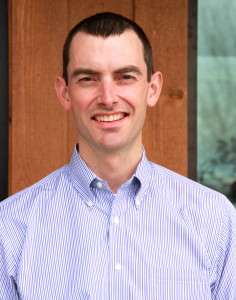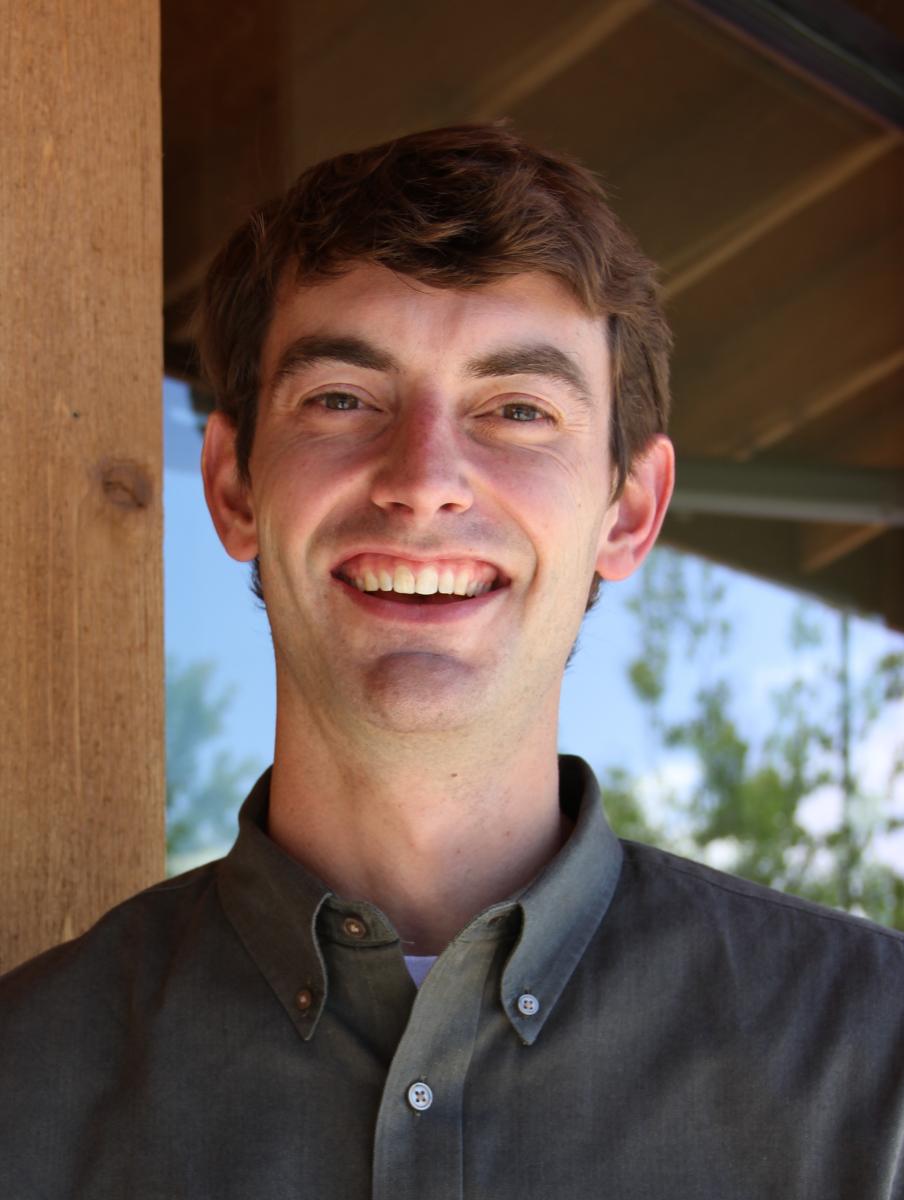 UPDATE: Conservefewell welcomes Reed Watson to its team of conservation bloggers.
UPDATE: Conservefewell welcomes Reed Watson to its team of conservation bloggers.
* * *
I had a chance recently to sit down with Reed Watson, the new Executive Director of the Property and Environment Research Center, to discuss his vision for PERC, one of the Nation’s leading environmental think tanks, get his take on the status of environmentalism, and get to know him a little better as a person. For those who may be unfamiliar with PERC, it was established in 1980 by some very gifted economists who believed that if markets could produce bread and cars, they should be able to produce environmental quality. Since its founding, PERC has risen to a prominent place on the environmental policy stage, with a willingness to thoughtfully challenge the orthodoxy of traditional environmentalism. Increasingly, mainstream thinking has come much closer to PERC’s philosophy. [You can find the interview here at PERC Reports,Volume 33, No.1, Summer 2014 ]
Watson, 32 years old, is also the Director of PERC’s Enviropreneur Institute, an educational program and launchpad for environmental entrepreneurs. Watson’s research focuses on the implementation of market-based solutions to natural resource conflicts. With Terry Anderson and Brandon Scarborough, he co-authored Tapping Water Markets (RFF Press, 2012). Watson holds a J.D. and M.A. in Environmental Economics from Duke University (go Blue Devils!) and a B.S. in Economics from Clemson University. He lives in Bozeman with his wife and two dogs, and is an avid outdoorsman and enjoys trail running, skiing, and hunting.
First, congratulations on your appointment as the new Executive Director for PERC. You obviously have some big shoes to fill as Terry Anderson hands over the reigns and looks to new leadership to advance PERC’s important work. Coming into this new role, what are your priorities for PERC and what, if any, changes might we see in PERC’s focus, research, or outreach?
Thank you. It’s a tremendous opportunity. As far as priorities, PERC’s bread and butter is and will always be research. What makes us unique, what distinguishes us from other conservation organizations, is our capacity to provide solid, unbiased research exploring how markets and property rights promote environmental quality.
In recent years, PERC’s outreach team has done an impressive job of growing our audience. Likewise, our applied programs have spurred real-world demonstrations of free market environmentalism. But research is the starting point, it’s our core, and it will remain so under my leadership.
What do you see as the biggest challenges facing conservation in 2014?
Policies that reduce economic wealth probably pose the biggest risks to conservation. As people get wealthier they demand a cleaner and cleaner environment. The data bear this out wherever you look, across continents and across resources. The notion that economic growth and environmental quality are mutually exclusive is not only wrong, it’s also persistent and dangerous. Ironically, environmental policies that inhibit trade and reduce wealth will actually undermine conservation, and that’s a real threat.
A few years back, Michael Shellenberger and Ted Nordhaus, wrote a controversial article on the Death of Environmentalism. Ted and Michael took a lot of heat in the environmental community for that article. Do you share their pessimism about the environmental movement today and, if so, how does the environmental movement need to change?
Yes and no. Shellenberger and Nordhaus hit the nail on the head by describing modern environmentalism as its own special interest, but they failed to mention that modern environmentalism, as a special interest, prioritizes its own preservation over the environment’s preservation. Environmentalism is not dying—the big players are raising more money than ever—but the era of sweeping environmental legislation is probably over.
To be clear, the impotence of modern environmentalism does not concern me in the least. PERC’s research has shown that comprehensive, top-down environmental legislation often wastes more resources than it conserves. Moreover, as sincere conservationists abandon the top-down model, alternative approaches like free market environmentalism should gain even more of a following.
Can you talk a little bit about the concept of Enviropreneurship, what is it, how it get started, and why its needed?
Enviropreneurship is the antithesis of political environmentalism. Enviropreneurs™ are environmental entrepreneurs who use property rights, contracts, and markets to enhance the value of environmental assets. They reject zero-sum tactics such as lawsuits and regulations, choosing instead to hash out positive-sum, voluntary agreements to promote environmental quality. Examples abound on PERC’s website (www.perc.org), but suffice it to say that enviropreneurs are the agents of free market environmentalism.
Last Fall, you and David Hawkins of NRDC debated the role of government and markets in offering sustainable solutions. Would you say the proponents of more government solutions are simply wrong or misguided, or is there a role for government and, if so, what?
Mr. Hawkins and I see things very differently. Indeed, our debate exemplified Thomas Sowell’s classic, “A Conflict of Visions.” Hawkins, like most proponents of government “solutions” to environmental conflicts, places enormous faith in the capacity of government experts to determine the socially desirable levels of environmental quality and the most appropriate means of achieving them. The thinking goes that these benevolent and omnipotent maximizers of the public good are immune to special interests, including their own.
Unfortunately, this model doesn’t comport with reality. Most of our nation’s comprehensive environmental laws are actually the product of Bruce Yandle’s “Baptists and Bootleggers” phenomenon. The regulated community (the “bootleggers”) hides behind environmental rhetoric (the “Baptists”) to pass anti-competitive laws and regulations which rarely promote conservation in a cost-effective manner. Whether this reality makes the proponents of more government “solutions” wrong or misguided, I don’t know. Perhaps it’s both.
There are many who remain mistrustful of markets for a variety of reasons. Can environmental markets be entrusted to achieve the best results for the environment and advance the public good?
Yes, when the property rights to environmental resources are clearly defined, enforced, and transferable, markets can’t help but allocate resources to their highest valued uses. It’s like gravity. As for engendering trust in markets, skeptics should read some of our enviropreneur success stories. The proof is in the pudding.
In your book, Tapping Water Markets, which you co-authored with Terry Anderson and Brandon Scarborough, you explore ways in which water markets can be improved and implemented further. What are the top two or three things that can be done to further these markets?
To unleash the power of water markets, the first and most important thing is to define and enforce property rights to the resource. Without property rights, markets don’t work. Period.
The second key to unlocking water markets is to prevent people who don’t hold water rights from contesting, delaying, or preventing water trades. Only water right holders should be able to block a water trade; otherwise, socially beneficial trades will be sacrificed at the altar of “externalities,” those gripes and complaints that lack any legal basis.
Of all the historical figures that have contributed to conservation over the years, e.g., Roosevelt, Pinchot, Muir, and Leopold, to name a few, what prominent figure do you personally relate to the most and why?
Does Ronald Coase count?
He does indeed. Thank you, Reed Watson. We appreciate you taking time to share your thoughts here on Conservefewell. And I wish you all the best in your new position.
[You can find this interview here at PERC Reports,Volume 33, No.1, Summer 2014 ]

